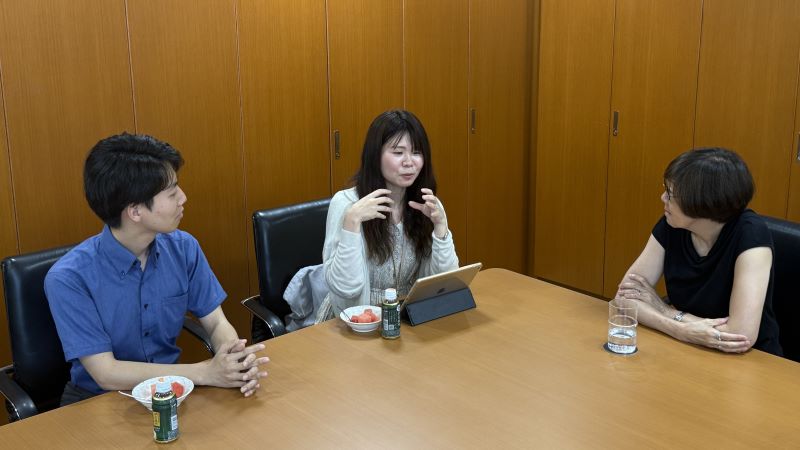聞く、話す、共有する
ずっとやってみたかった「<法政学>への招待」の授業を、ついに総長として担当させていただきました。第13回の「『自由と進歩』と法政大学憲章〜『法政らしさ』を考える」というテーマのもと、「法政大学の現状(近年の動き)と今後の展望について」という内容でした。
せっかくの機会でしたが、風邪で声がかなりかすれてしまい、受講していた学生の皆さんには本当に申し訳なく思っています。聴きづらい声で、1時間ほどお付き合いいただきました。翌日には、完全に声が出なくなってしまいました。
私はもともと人と話すのが好きなので、声が出ないのはとてもつらいことでした。でも、その分、お話し相手の言葉により集中して耳を傾けるようになったのも事実です。
最近では、教室でも討論を中心とした授業が増えてきています。私のゼミも同様のスタイルです。ディスカッションが「上手」な人というのは、相手の話をしっかり聞いた上で自分の考えを述べ、さらに相手にも応答の機会を与えられる人ではないでしょうか。
私は、香港のアメリカン・ミッション系の中高一貫校で、授業内外を通してディスカッションのスキルや心構えを学びました。香港大学では、イギリス式の「チュートリアル」が中級以上のほとんどの科目に必修として組み込まれており、アメリカの大学院でも、少人数ディスカッション中心の授業を楽しく履修してきました。
もちろん、私のように話すことが好きな人もいれば、そうでない人もいます。でも、ある程度コミュニケーションがうまく取れるようになると、それが自分の学びや成長につながっていくと思います。
そして、忌憚のない意見交換のためには、環境づくりが非常に大切です。私のゼミの学生がよく口にするのは、「安全な空間」という言葉です。相手を尊重し、一定の守秘義務を前提に、「心理的に安全で安心できる場」があることで、円滑な意見交換や、自分の思いや考えを共有することが可能になります。
「大人の世界」では、こうしたことを実現するのが少し難しいと感じることもあります。文化的な背景に加え、肩書きや社会・組織内での立場、あるいは担当や部局間の利害関係などが、率直な意見交換を妨げているのかもしれません。
長く話し続ける一人や数人と、ほとんど発言しない大多数が同席する会合では、「生産性」が低く、新しいアイデアも生まれにくいと感じます。
総長として、若手職員の皆さんとお話しする機会が何度もありましたが、正直な意見をいただく中で、法政大学という組織をよりよくしたいという前向きな意欲も強く感じました。
これからも心理的安全な場をつくっていきたいと考えています。まずは「よく聞く」「適切に話す」ということから、一歩を進めてまいりましょう。
Listening, Speaking, Sharing
I’ve long wanted to teach a class on “Introduction to Hosei Studies,” and I finally had the opportunity to do so as President. In the 13th session of the course, titled “Freedom and Progress” and the Hosei University Charter: Reflecting on What Makes Hosei Unique, I gave a lecture on “Hosei University Today—Recent Developments and Future Prospects.”
It was a valuable opportunity, but unfortunately, I had a bad cold and my voice was very hoarse. I truly felt sorry for the students attending, as it must have been difficult to listen to me for the full hour. The next day, I lost my voice completely.
As someone who enjoys talking with others, being unable to speak was hard. But in that silence, I found myself listening more intently to what others were saying. Actually, classroom environments that emphasize discussion are becoming more common, and my own seminar follows that model. I’ve come to realize that those who are “good” at discussion are not just articulate speakers—they’re good listeners who respond thoughtfully and also make space for others to join in.
I learned these skills and attitudes toward discussion in an American mission school in Hong Kong, both inside and outside the classroom. At the University of Hong Kong, which follows the British system, mid-level and advanced courses required tutorials that emphasized student participation. And in graduate school in the U.S., I thoroughly enjoyed small, discussion-centered classes.
Of course, some people enjoy speaking, like I do, while others may not. But the ability to communicate—even to a certain degree—can make a real difference in how we learn and grow. I also believe that honest and open exchange of ideas depends heavily on the environment. My seminar students often talk about the importance of creating a "safe space"—a place where mutual respect and a shared understanding of confidentiality allow people to express their thoughts and ideas freely.
In “the world of adults,” creating that kind of space can feel more challenging. Cultural factors may play a role, but so do titles, organizational hierarchies, and conflicting departmental interests. When one or two people dominate the conversation while most remain silent, the productivity of a meeting drops and nothing truly new emerges.
Since becoming President, I’ve had several opportunities to speak with younger staff, and I’ve been struck not only by their honest feedback but also by their strong desire to improve Hosei University as an organization. Going forward, I want to continue fostering environments where people feel psychologically safe. And to begin with, I hope we can all take that first step—by listening carefully, and speaking appropriately.

若手職員との対話の様子

